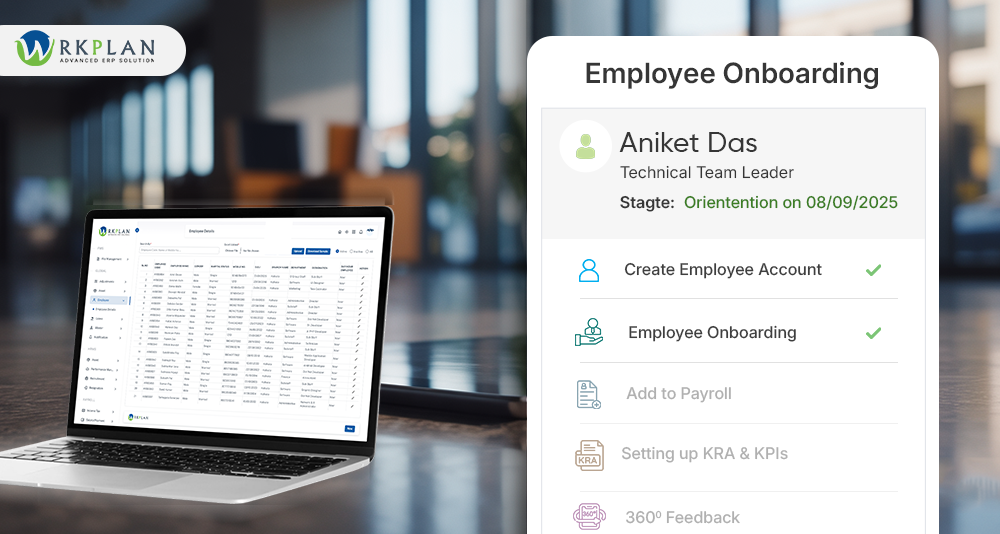Employee lifecycle management is one of the most critical aspects of running a successful business. The way a company welcomes new hires and ensures a smooth transition when employees leave says a lot about its culture, efficiency, and professionalism.
Unfortunately, many organizations still rely on fragmented systems, manual paperwork, and disjointed processes that create confusion and inefficiency. This is where Enterprise Resource Planning (ERP) systems come into play. Through centralizing and automating HR processes, ERP platforms streamline both onboarding and offboarding, ensuring consistency, compliance, and a better overall employee experience.
Why Onboarding and Offboarding Matter
Onboarding – First Impressions Count
The onboarding process shapes how employees perceive the company from day one. A seamless, structured onboarding experience leads to:
- Higher engagement and productivity
- Faster ramp-up times
- Stronger employee retention
Offboarding – A Lasting Impression
When employees exit, the offboarding process determines how they remember their time with the company. A respectful, organized offboarding experience helps to:
- Protect company data and assets
- Maintain compliance and reduce risks
- Foster positive alumni relations
Both stages — entry and exit — are equally important, and ERP systems ensure that they are handled with accuracy and professionalism.
How ERP Transforms Employee Onboarding
An ERP system consolidates all HR, payroll, compliance, and IT requirements into a single platform. This integration eliminates the need for repetitive data entry and manual coordination across departments.
Key Benefits for Onboarding
- Centralized Documentation – New hires can access offer letters, policies, tax forms, and benefit enrollment materials from one secure portal.
- Automated Workflows – ERP triggers tasks for IT (setting up email IDs, system access), HR (benefits setup), and managers (training assignments).
- Self-Service Portals – Employees can update personal information, submit documents, and track onboarding progress without relying on HR for every step.
- Training & Development Integration – Learning management modules allow employees to enroll in training courses immediately.
- Compliance Assurance – Built-in checklists ensure all legal and organizational requirements are completed without oversight.
Simplifying these steps helps ERP reduce onboarding time, minimize errors, and improve the overall employee experience.
How ERP Streamlines Employee Offboarding
Employee exits — whether voluntary or involuntary — require careful handling. ERP systems make the process transparent, structured, and secure.
Key Benefits for Offboarding
- Automated Exit Checklists – ERP assigns tasks such as return of assets, revoking access credentials, and final payroll calculation.
- Seamless Knowledge Transfer – Systems can document responsibilities, project handovers, and successor details.
- Final Settlements & Compliance – Payroll modules automatically handle final payments, deductions, and benefits termination in compliance with labor laws.
- Data & Asset Security – ERP ensures timely revocation of IT access and retrieval of physical assets.
- Exit Surveys & Analytics – Integrated feedback tools capture insights into employee satisfaction and reasons for departure.
With ERP, businesses safeguard sensitive information while leaving employees with a positive final impression.
The Bigger Picture – Why ERP Matters for HR
Implementing ERP for onboarding and offboarding is not just about efficiency — it is about aligning HR practices with business strategy. Companies benefit from:
- Reduced administrative burden on HR teams
- Improved employee satisfaction and employer branding
- Data-driven insights for workforce planning
- Consistent processes across locations and departments
HR professionals can focus on higher-value initiatives like talent development and employee engagement by automating routine tasks.
Onboarding and offboarding are more than administrative formalities — they define an employee’s journey with the organization. An ERP system transforms these critical stages into streamlined, transparent, and positive experiences for both employees and employers. Companies that invest in ERP not only enhance operational efficiency but also strengthen their reputation as an employer of choice. In today’s competitive job market, that can make all the difference.

